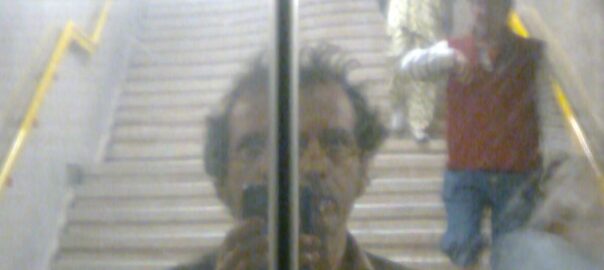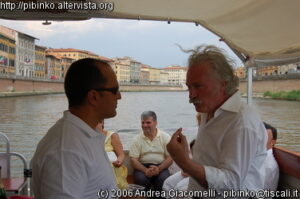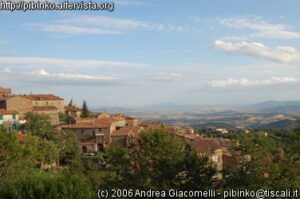[Note on Jul. 13, 2020: while writing the June 3, 2020 article “Do you feel more like a scientician or a politicist?”, I did not remember about this one from 2015. They are, in fact, related]
A few days ago Luca de Biase wrote a blog post (Clima. Oltre gli scienziati esistenzialisti. La politica come problema scientifico), commenting an Esquire article (When the End of Human Civilization Is Your Day Job) which could be used as a script for a docu-fiction.
Both the Esquire article, and the comment by de Biase are interesting, and triggered two more comments:
About the relationship between Science and Politics: I have been following this thread since 1994, when I was a young apprentice as a PhD studend at Politecnico di Milano.
Technically, and being hosted in a Hydraulics institute, I was supposed to be working on soil moisture. However, in the midst of extensive literature reviews, my eye was drawn to a paper by King and Kraemer (1993), which portrays well the relationship between science -and especially modelling, in that paper- and politics. Going beyond citations, the separation between science and politics is as hard as -in Italy- the idea of separating the careers of judges and district attorneys.
A scientist who is not related to politics might discover the highest summits of knowledge in an area of expertise, but his discoveries will not be acknowledged by somebody with a vision to transfer such findings in society or in a government agenda. Or the scientis might be spending a lot of time research stuff that is useless in the historical and political context where he lives.
A politician who is disconnected from science will be just as diminished. He will have less tools to “read” his land, human health, music, water or salami, or any other issue he needs to handle in his wishlist (during a campaign), or in his “to do” list (once he gest elected, or even once he has not elected).
On the Florence declaration, a few months ago (the State of the Union conference in May 2015): in May I wasn’t there, but I was among the delegates for another event in Florence when climate and the next COP event in Paris were discussed. De Biase comments that -in light of the preparations for the Paris summit- it is interesting to recall a part of the declaration indicating that: «A shift of resources to a ‘Common Urban Policy’ – in which mayors could play an important role – with urban renewal projects contributing to growth and employment, as well as climate control, should be considered a priority in a reviving Europe.»
I am thinking, yet again, that if it is a truism that resources will tend to go where more people (and votes) reside, it is important that future residents of future smart cities do not forget the existence of a “smart countryside” and of rural areas. At times certain issues can be better assessed if the observer sits at a distance. Did you know that from the South side of Monte Amiata (in Southern Tuscany), at night it is possible to see Rome?
p.s. Occasionally it would not be a bad idea for both scientists and politicians to come and work in the country (just like for some country folk visiting a science lab or following a political campaign in the city would not hurt).


